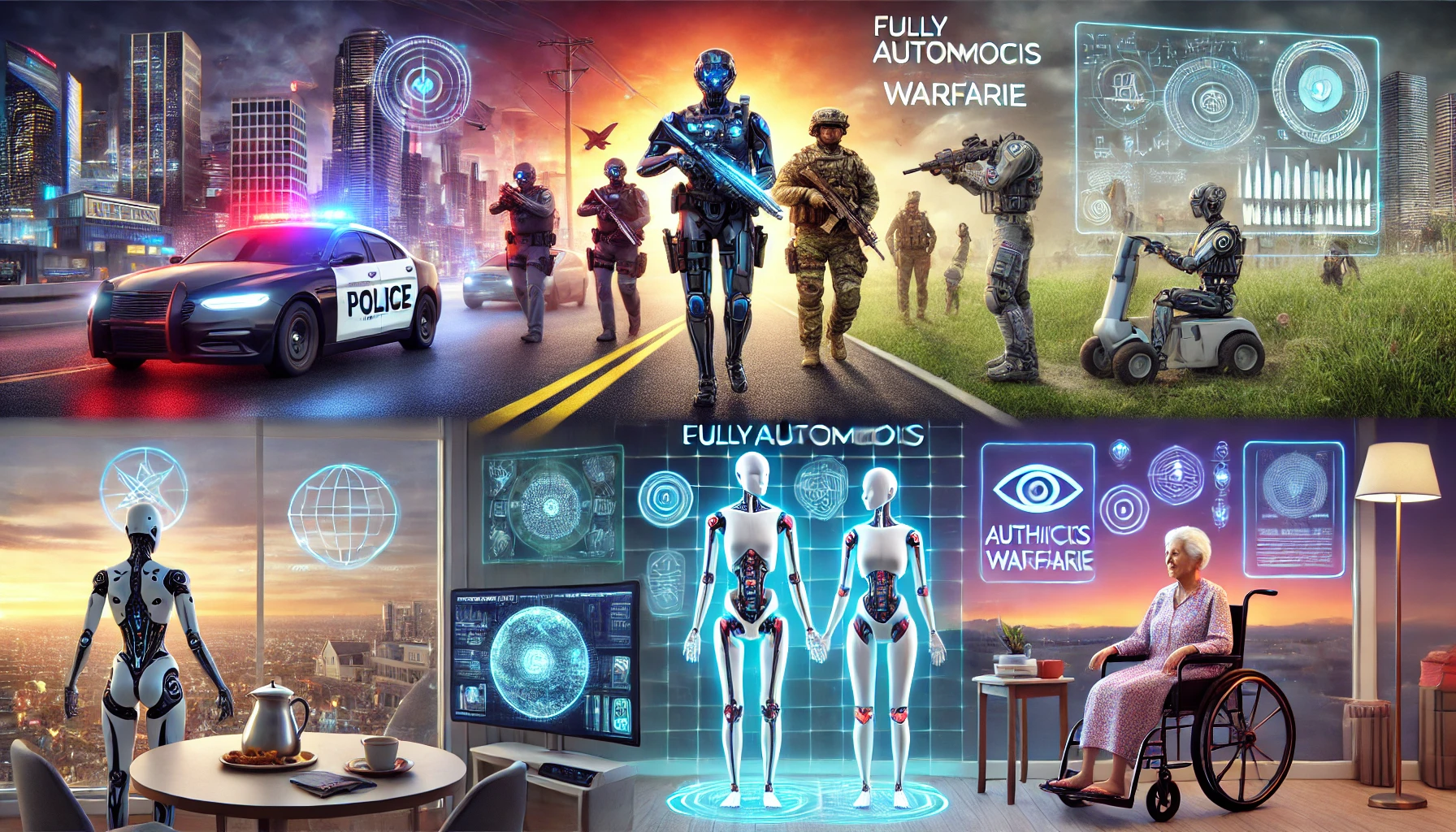The Ethics of Autonomy: Are Robots Ready to Make Big Decisions for Us?

The Rise of Autonomous Robots: A Brave New World
Remember when robots were just the stuff of sci-fi movies? Well, fast forward to today, and we’re living in a world where robots are no longer confined to Hollywood fantasies. They’re real, they’re autonomous, and they’re about to make some big decisions on our behalf. From self-driving cars to robot caregivers, these machines are quickly infiltrating fields that affect human lives in profound ways. But with great power comes great responsibility—or in this case, moral dilemmas. What happens when these robots are put in situations where their decisions impact human life? This is where the ethical debate surrounding autonomy gets interesting.
Law Enforcement: The RoboCop Reality
One of the hottest topics in the ethics of autonomy is the use of robots in law enforcement. Think RoboCop—but without the human part. Imagine a fully autonomous police robot patrolling the streets, making split-second decisions on who is a threat and who isn't. Sounds cool? Maybe, but it’s also a moral minefield. What happens when a robot makes a mistake? Who’s responsible? The company that made it, the city that deployed it, or the programmer who wrote its code? And let’s not forget the potential for bias. Even the best-intentioned algorithms can reflect the biases of their creators. Recent debates have called for strict regulations and ethical guidelines to govern how these robotic law enforcers are used, but so far, it's all a bit of a wild west.
Robots in Warfare: The Future of Battlegrounds
Speaking of moral dilemmas, let’s talk about autonomous robots in warfare. Drones are already being used in military operations, but what about fully autonomous systems that don’t need human oversight? We’re talking about robots that could independently decide when to fire a weapon. The ethical implications are staggering. Can a robot truly understand the value of human life? Can it weigh the complexities of war, morality, and collateral damage? Experts are torn. Some argue that autonomous systems could reduce human casualties, while others warn that delegating life-and-death decisions to machines is a slippery slope. There’s even an ongoing debate at the United Nations about banning autonomous weapons before they become a reality. The stakes couldn’t be higher.
Caregiving Robots: Help or Harm?
It’s not all bullets and battlegrounds, though. Autonomous robots are also making their way into caregiving roles, especially in countries with aging populations. Picture a robot that can assist the elderly with everyday tasks, monitor health conditions, and even provide companionship. Sounds like a dream, right? But let’s pump the brakes for a second. The ethical issues here are less about physical harm and more about emotional and psychological impacts. Can a robot really offer genuine care? What happens to human interaction when we start outsourcing empathy to machines? Critics argue that over-reliance on caregiving robots could lead to social isolation for the elderly. On the flip side, proponents claim that these robots could fill a gap in understaffed healthcare systems. It’s a balancing act that society will need to figure out sooner rather than later.
Regulating the Future: Can We Keep Up?
With all these ethical dilemmas swirling around, one thing is clear: we need regulations. But can laws keep up with the rapid development of robotic technology? Right now, the regulatory landscape is a bit like trying to nail jelly to a wall. There’s no one-size-fits-all approach, and different countries have vastly different ideas about how to handle autonomous robots. In the U.S., for instance, the debate is mostly about privacy and liability, while in Europe, discussions tend to focus more on human rights and dignity. However, there’s a growing consensus that we need international standards to ensure that autonomous robots are developed and deployed responsibly. Various regulatory efforts are already underway, with some organizations proposing guidelines for ethical AI and robotics, but whether these will be enough remains to be seen.
The Bottom Line: Where Do We Go from Here?
So, what’s the takeaway from all this? Autonomous robots are here to stay, and they’re going to play an increasingly important role in our lives. But with this rise in autonomy comes a whole host of ethical challenges that we need to address. From law enforcement to caregiving, the decisions these robots make could have far-reaching consequences. The key is finding a balance between innovation and responsibility. We need to ensure that these robots are designed, programmed, and deployed in ways that respect human life and dignity. And, of course, we need regulations that can keep pace with the technology. The future of autonomy is exciting, but it’s also fraught with moral dilemmas that we’ll need to navigate carefully.
What’s Your Take?
As robots become more autonomous and take on bigger roles in society, what ethical concerns worry you the most? Are you excited about the potential, or do you think we’re opening a Pandora’s box of moral dilemmas? Let us know your thoughts!



